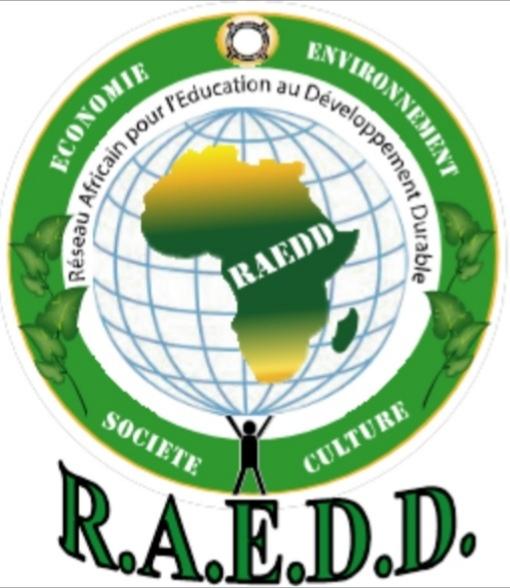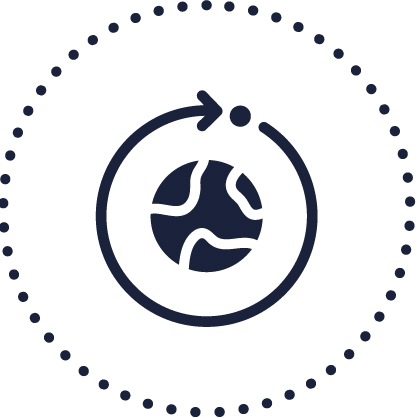Logpom2’s High School at the School of the Climate Emergency and Environmental Protection
The RAEDD set out at COP 22 to improve its members' knowledge on climate change and popularize the knowledge acquired in Cameroon. It was also to share the experiences of the association in the implementation of education for sustainable development (ESD) in Cameroon.

Overview of the project
The project ”The bilingual high school of Logpom2 at the school of the climatic emergency and the safeguarding of the environment” is the result of a firm citizen commitment of the head of this establishment to register her establishment in a perspective of education for sustainable development. To this end, the African Network for Education for Sustainable Development – RAEDD – whose expertise is established in the field translates this will into an initiative, so that the bilingual high school of Logpom becomes a pioneer in this approach. But it should be noted that the RAEDD, for years, has been inviting school principals to join sustainability in view of the commitments made by Cameroon at the COP21 in Paris to reduce CO2 emissions by 32 percent by 2035. While hammering that these commitments can only be achieved through ESD. However, school principals have remained deaf to this call.
Also, the RAEDD, in the course of the project program, started with upstream consultations which were to allow to sensitize all the actors in order to obtain their massive adhesion to the project. These consultations consisted of a survey through exchanges with teachers and students to find out if they had ever heard of SD and ESD. In most cases, the answer was negative; however, a few years earlier, this high school had developed its school agenda21 during our training. This was followed by a PowerPoint presentation of the project. This step allowed everyone to understand the concepts of SD and ESD. It was a fruitful working session that led to the appointment of a project focal point and his deputy, two young teachers in fact. Everything was off to a flying start. Two days later, the sustainability statement that the principal had asked to prepare was signed. This is a document that attests to the school’s clear commitment to SD and ESD. A special working session was held between the ESDN, the Principal and the two focal points to define the responsibilities of each. The Principal was responsible for monitoring the project activities and their evaluation, as were some members of the ESDN. The focal points were in charge of mobilizing teachers and students who wanted to participate actively in the project, who were to spread the project among their peers. The massive attendance at these workshops testifies to the enthusiasm of the teachers and especially the students. To this end, in the agenda recommended by the RAEDD for the achievement of the noble global objective of ESD by LYBILOG2, there is the implementation of a programme package that goes from climate education to the environment, which includes the fight against pollution and the recovery of organic and plastic waste, in short, to the fight against CC, which is the daughter of planetary citizenship, in order for LYBILOG2 to become a green and sustainable school in the near future. All this presupposes the acquisition of skills, including know-how and other knowledge about sustainability. But in order to achieve this, the school can and must take a decision that often seems difficult to make: to set up a “plastic-free school”, i.e. without plastic waste.
The overall objective is that the bilingual high school of Logpom2, including its school staff, take ownership of SD so that everyone teaches their subjects taking it into account. This is in an APC perspective and therefore ESD so that students are equipped with skills and competencies to participate in the development of the country.
Ongoing research
10/15/2019 - 05/31/2021
Since it is a bilingual high school, in terms of enrollment, it has 3800 students. Some 300 students are directly involved in the project program and are part of the school’s environmental police, who are responsible for disseminating the objectives of the program to their fellow students. The number of permanent teachers is 180; the number of temporary teachers is 20. In the end, the entire educational community of this high school is affected since the children tell their parents about the project at home. Not to mention the municipality and the local residents. At the very least, more than 10,000 people are affected by the project.
This vast project-program achieved the following results:
- The project-program was presented on Power-Point to the teachers, then to the students to request their adhesion, this after a small survey made beforehand which consisted in knowing if the ones and the others had already heard about SD.
- After the presentation of the project, two focal points were unanimously designated.
- Their roadmap was given to them after a small conclave in the office of the principal.
- The principal was in charge of the monitoring and evaluation of the project.
- The setting up of an environmental police force in charge of environmental monitoring followed.
- The organization of weekly ecojoggings to raise awareness of environmental protection by rejecting single-use plastic packaging.
- The acquisition of an ecobin for the deposit of plastic waste that a local micro-enterprise removes according to a well-defined schedule.
- A general paper waste management system is set up.
- A partnership request is addressed to the only company in charge of hygiene and sanitation in order to provide the school with organic waste bins.
- The manual work activities in the programs and training modules have been instituted.
- The institution of the minute of sustainable development during the ceremony of raising the colors every Monday morning.
- Information/awareness on SD/ODD during the coordination meeting of the high school administration.
- Information/awareness on SD/ODD for the staff during the general assemblies.
- Information/awareness on SD/ODD during the general assemblies of the parents’ association and teachers.
- The training of eco-bakers to the standards of cleanliness and salubrity required by sustainability, with the award of a certificate.
- The organization -at the beginning- of bimonthly workshops with school personnel in order to reinforce their capacities so that they teach SD with an increased effectiveness.
- Monitoring and evaluation of the project with the possibility of readjustment to achieve the objectives in a measurable way.
- Accountability for the progress of the project through extended meetings with all stakeholders or beneficiaries.
- The production of at least one mid-term report before the final report at the end of the project.
- A final report is being written.
- A monitoring team is set up to ensure the sustainability of the project.
The project was essentially financed by the beneficiary high school. It was financed up to 2500 euros, that is around 1800000 frs.
organisation
The African Network for Education for Sustainable Development (Réseau Africain pour l’Education au Développement Durable -RAEDD) is an association that is well versed in the issues of sustainable development and especially development education. It has been carrying out ESD activities for nearly a decade, before it was recognized by a sub-prefectural receipt of declaration in 2015 and again recently by prefectural receipt n.326/2019/RDA/C19/SAAJP of the Wouri prefecture, dated 19/08/2019. The members of RAEDD are mainly recruited among teachers who, after their Master’s degree in ESD, decided to form an association. Its strong commitment to ESD, environmental education, the fight against CC, in short, to SD, allows it to remain a valid interlocutor in matters of SD and ESD. The RAEDD has a strong partnership potential at the national level consisting of the urban community of Douala which has become a super-mayor, the Ministry of Environment, Nature Protection and Sustainable Development. It is part of the national committee for monitoring the 2030 Agenda on ESD, it is a member of the national strategy for sustainable development, etc. Internationally, it is a partner of the Alliance for Education and Global Citizenship -AECP- based in France, of the association Climate chance, based in France, of the University of Clermont-Auvergne, based in France. He has already led several projects with mastery at both the national and international levels. At the national and international level, the local celebration of the end of the decade of education for sustainable development in 2015, the participation in the conference of the parties in Morocco in 2016 -COP22-, this with the project ”The school staff of Douala in the school of climate change”. His other participation in international summits are no less important: Nairobi sub-Saharan workshop on ESD, 2017; COP 24 in Berlin, 2018; Climate chance summit in Agadir, 2017; Climate chance summit in Abidjan, 2018; Climate chance summit in Accra, 2019. With the AECP, he leads the project called “The Interconnected” which is currently underway. This project consists of letter exchanges between the North and the South on the environment and climate change. It involves especially the learners who share their respective experiences in environmental protection and the fight against climate change, under the coordination of focal points. The University of Clermont-Auvergne actively participates in the FECODD project-meaning Training, Education, Competencies and SD objectives. This project is coordinated by Dr Didier Mulnet. Previously, RAEDD led the ZEBTVODD project consisting of the editing of capsules for distance learning. For this purpose, RAEDD had proposed four capsules. For several years, RAEDD has been part of the CC Education and Training coalition at Climate chance where it is considered the lead organization.
L’avant dernier projet mené a eu lieu en 2018 intitulé ‘’Le développement durable, socle des villes et communautés apprenantes, des engagements aux actions concrètes’’, ce sous le parrainage du bureau sous-régional de l’UNESCO Afrique centrale, etc. Un de nos derniers projets a été retenu comme exemple à suivre au sommet africain sur le climat organisé par Climate chance, lequel sommet s’est tenu du 16 au 18 octobre 2019 au Ghana. Ce projet est logé sur le site de cette association, sans oublier les autres initiatives inscrites dans sa cartographie. Le dernier projet en date qui se boucle le 31 mai 2021 est intitulé : Le lycée bilingue de Logpom2 à l’école de l’urgence climatique et de la sauvegarde de l’environnement.
Pourquoi le RAEDD se veut-il partie prenante de cette éducation ?
C’est en vertu de plusieurs textes de lois dont la loi n-98/004 du 14 avril 1998 d’orientation de l’éducation au Cameroun qui relève, en son article 11, alinéa 01, en matière de décentralisation, que l’Etat assure l’élaboration et la mise en œuvre de la politique de l’éducation à laquelle concourent les collectivités territoriales décentralisées, les familles ainsi que les institutions publiques et privées. Le RAEDD fait partie de ces institutions privées.
En fin de compte, il s’agit d’un projet multidimensionnel, alliant l’EDD proprement dite à la valorisation des déchets organiques issus du lycée et du domicile des parents d’élèves. Ce qui permet aux apprenants d’acquérir des compétences dont ils ont besoin pour assainir l’environnement et participer à l’atténuation de la pollution et par conséquent des changements climatiques.
in collaboration
The regional delegate of the Ministry of the Environment, Nature Protection and Sustainable Development for moral support. But also tacit moral support of the Ministry of Secondary Education because of its current editorial line turned to the education to the DD.








